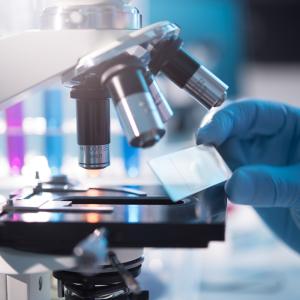
In this bonus episode of Vital Signs, Dr. Robert Montgomery, Dr. Deborah M. Axelrod, and Dr. Stephen Ross explore how their work was affected and influenced by the COVID-19 pandemic.
Photo: NYU Langone Staff
The pandemic altered the lives of doctors across all areas of healthcare—not just those on the front lines. In this bonus episode of Vital Signs, we hear from NYU Langone experts who describe COVID-19’s impact on their work and recent advances in their fields.
As a transplant surgeon and heart transplant recipient himself, Robert Montgomery, MD, director of the NYU Langone Transplant Institute, experienced firsthand the many and dire challenges posed by the pandemic. He recounts the early, “staggering” COVID-19 mortality rates among transplant patients and his role in influencing the Centers for Disease Control and Infection (CDC) to update its vaccination guidelines for organ transplant recipients.
Breast surgeon Deborah M. Axelrod, MD, who previously recounted her own breast cancer journey, describes how the pandemic delayed breast cancer screenings and surgeries. “I still think people are afraid to go for their mammograms,” she says. Dr. Axelrod, director of clinical breast services at NYU Langone’s Perlmutter Cancer Center, also discusses a new grant that is enabling NYU Langone to investigate ketamine as a pain reliever for people recovering from mastectomy.
NYU Langone psychiatrist Stephen Ross, MD, expands on his research into the use of psychedelics to treat anxiety and depression to talk about a new study borne out of the COVID-19 pandemic. “I was seeing my colleagues on the front lines, dealing with COVID and being traumatized by it,” he says. “So I designed a trial using psilocybin to treat existential distress in frontline healthcare workers.”

